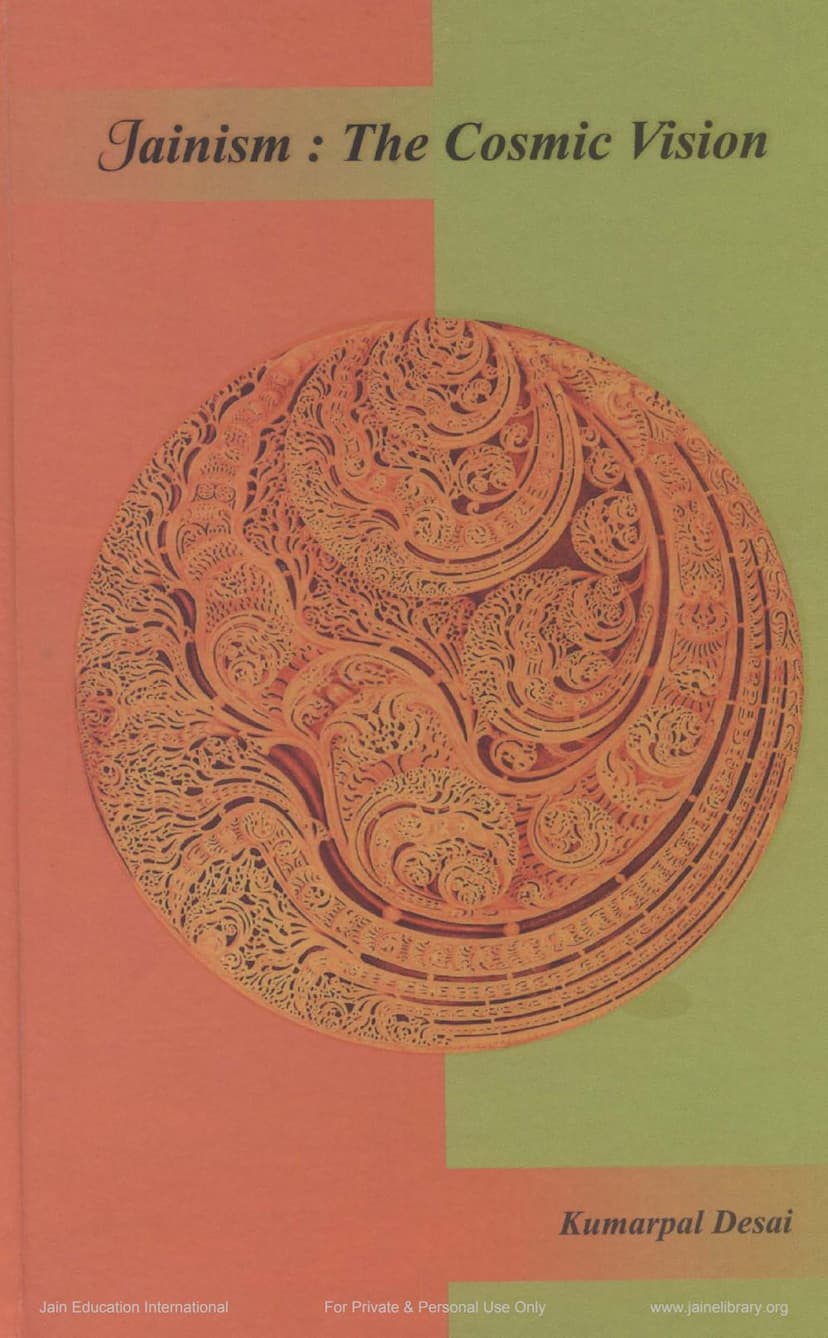Jainism The Cosmic Vision
Added to library: September 2, 2025

Summary
"Jainism: The Cosmic Vision" by Kumarpal Desai, published by UK Mahavir Foundation, London, is a comprehensive exploration of Jain philosophy and its relevance to modern life. The book, comprising sixteen chapters, argues that Jain teachings offer valuable insights not only for followers of the faith but for humanity at large, providing a path towards a spiritual, ecological, and ethical way of living.
Desai emphasizes that Jain principles like Ahimsa (non-violence), Aparigraha (non-possession), and Anekant (non-one-sidedness) are crucial for addressing the strife-torn and environmentally challenged world of today. The foreword by Dr. N. P. Jain, former Indian Ambassador, highlights how Mahatma Gandhi was deeply influenced by Shrimad Rajchandra, a Jain spiritual mentor, and applied Jain principles in his struggle for India's independence. The book also touches upon the need for a global Jain diaspora to collaborate on compassionate action and addresses human rights and compassion towards animals, noting Jainism's unique emphasis on the "Right to Life" for all living beings.
The book delves into the core beliefs of Jainism, including its understanding of reality, the six eternal substances (sad-dravya), the nature of the soul (jiva), and the law of moral causation (karma). It outlines the path to liberation (moksha) through the "three jewels" – right faith, right knowledge, and right conduct – and elaborates on the Jain practices of five vows (vratas) for monks and nuns (mahavratas) and householders (anuvratas), supplemented by seven supporting vows.
Desai highlights Jainism's significant contributions to Indian culture, including equality (Sama), self-control (Shama), and dignity of labor (Shrama). The text emphasizes that Jain ethics are directed towards individual liberation and the spiritualization of life. It details the Jain emphasis on Aparigraha (non-possession) as a means to bridge the gap between the rich and the poor and advocates for vegetarianism as a solution to world hunger. The book underscores Jainism's rich literary heritage, its influence on art, architecture, and its role in the development of Prakrit and Sanskrit languages.
The book explores the timeless message of Bhagwan Mahavira, focusing on his teachings of non-violence, truth, non-stealing, celibacy, and non-possession. It details Mahavira's life, his renunciation, his severe austerities, and his attainment of omniscience. The text stresses the profound social revolution Mahavira brought about by challenging the caste system and advocating for the equality of all beings, regardless of gender or caste. It also discusses the importance of Anekantavada (the doctrine of many-sidedness) as a means to foster tolerance and understanding.
The concept of Kshamapana (forgiveness) is presented as a central virtue, emphasizing both asking for and granting forgiveness, and its transformative power. The book explores anger as a destructive force and contrasts it with the purity and strength of forgiveness, drawing examples from Jain scriptures and the lives of great souls.
The role of women in Jainism is highlighted as being progressive and ennobling, with women accorded equal status and participating actively in religious and social life. The text notes that women have achieved spiritual liberation and held positions of influence, contributing significantly to Jain philosophy, literature, and culture.
The book also examines the Jain diaspora and the efforts of Jain communities worldwide to preserve their heritage, promote Jain principles, and foster unity. It calls for a unified global Jain body to represent the community and propagate its ideals. The work details the contributions of various Jain institutions in India and abroad towards research, education, and the preservation of Jain literature and culture.
Finally, the book emphasizes the relevance of Jain philosophy, particularly its emphasis on non-violence, compassion, and Anekant, in addressing contemporary global challenges like violence, terrorism, and environmental degradation, advocating for a peaceful and harmonious world.